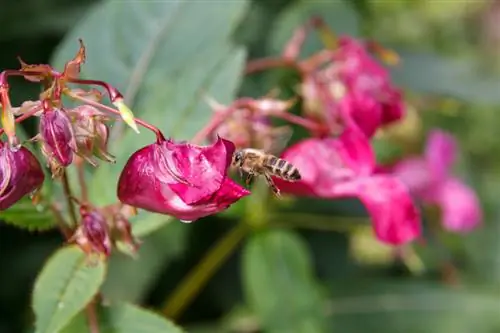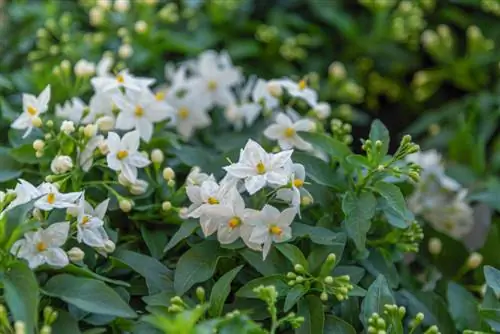- Author admin leonars@hobbygardeners.com.
- Public 2023-12-16 16:46.
- Last modified 2025-01-23 11:20.
Many attractive flowering plants are so beautiful that you can't tell that they are sometimes poisonous. The agapanthus, which is valued as a pot plant, is also a poisonous plant with particular flowering properties.

Is the African lily poisonous?
The African lily (Agapanthus) is poisonous; the root rhizome in particular contains dangerous toxins. Touching and consuming flowers and leaves should be avoided. Protective gloves are recommended when handling rhizomes.
Precautionary measures around the African lily
The natives of South Africa are said to have used the African lily to poison arrowheads with the poison from the rhizomes. As a precaution, adults and children should not touch or consume the leaves and flowers of the African lily. Basically, the poison of this plant is located in the root rhizome.
Be careful when dividing plants
The African lily is usually propagated by dividing the root rhizome. To do this, the following steps are carried out:
- removing it from the usually completely rooted pot
- dividing with an ax or saw
- planting in planters that are not too large
As a precaution, wear gloves when dividing the rhizome, wash your hands afterwards, and be careful not to let pets grab or bite pieces of the rhizome.
Tips & Tricks
If possible, point out to children and visitors early on the toxicity of certain plants in the garden. If you deal properly with the high proportion of poisonous plants in nature and in the garden, you don't have to forego their beauty.






